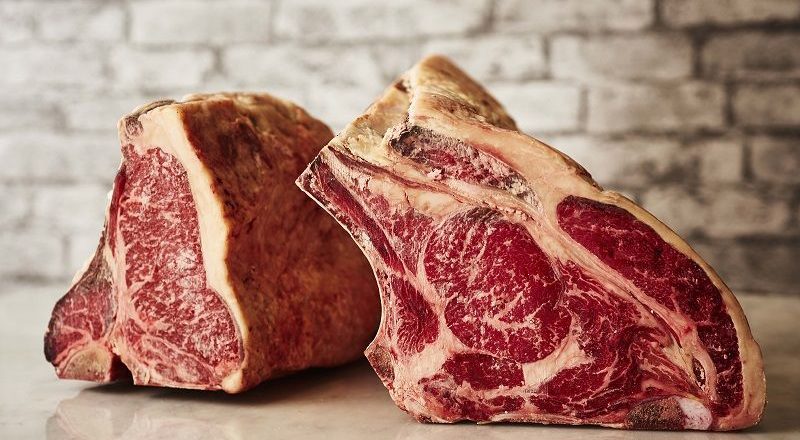
The importance of meat in pregnancy
The importance of meat in pregnancy is often and dangerously underestimated. Let’s see the benefits of a complete diet for a mother and her unborn child.
Pregnancy is a very special moment in the life of every woman. The body generates another life with a real miracle. Because of the magnitude of this event, we must provide the maximum to the female body, satisfying all her needs. By the way, more and more studies confirm the determining role of meat and animal-source foods in this critical phase so that everything proceeds for the best.
As you can imagine, the pregnant woman’s nutritional needs are very high. According to the LARN, which is the reference level of nutrient and energy intake for the Italian population, the recommended protein intake in the third trimester of pregnancy is 80 grams per day. Proteins are a primary nutrient because they provide “building blocks” for the construction of all tissues of the unborn child, the mother’s uterine tissues, amniotic fluid, and the placenta.
#Meat, with its high biological value #Proteins, all the essential #amino acids, #vitamins, #minerals and good #fats, is ideal for the growth and development of the #child. Click To TweetFor this reason, meat is the perfect food, containing high biological value proteins with all the essential amino acids, vitamins, minerals and good fats that are used to support the child’s growth and development. These include all B vitamins, especially vitamins B12 and B9, and folic acid, which are important for forming red blood cells, the nervous system and the proper development of the foetus’s spinal cord. The requirement of vitamin B12 in pregnancy increases up to 2.6 µg per day, and that of folic acid increases from 400 to 600 μg per day to allow normal development of the baby and avoid affecting the maternal reserves.
In meat, these vitamins are in higher quantities than any other food and vitamin B12 is lacking in plant foods. For this reason, meat and animal foods become indispensable to avoid dangerous deficiencies that could adversely affect embryonic and foetal development, with anaemia and delays in the somatic and cognitive growth of the child. A high intake of animal proteins has proved effective in preventing the risk of birth problems in sub-Saharan Africa, where access to high nutritional value animal-source foods is unfortunately still limited. Meat has shown a protective effect in preventing adverse clinical effects, such as foetal loss, intrauterine growth retardation with low birth weight, premature birth and neural tube defects.
Eating meat for pregnant women is also essential to meet the increased need for iron in the foetus. In fact, during the first months of pregnancy, the foetus removes iron reserves from the mother, which, if not replenished through good food sources, is a high risk of iron anaemia. This is why the need for iron in pregnancy is very high, estimated at 27 mg daily. That is a very difficult level to obtain, considering that the only reliable source of heme iron readily absorbable and biologically useful is red meat, beef and pork, followed by poultry and fish.
The intake of #meat for #pregnant #women is also essential to meet the increased need for #iron in the #fetus. Click To TweetEven a recent study confirms the need for meat in pregnancy, especially red meat, because of heme iron intake, whose deficiency can cause long-term negative effects at a neurological level. It should be remembered that our body does not efficiently absorb non-heme iron from plants, whereas red meat’s heme iron boasts a high absorption percentage. For this reason, meat in the meal helps increase even plant iron absorption.
Excessively reducing meat intake during pregnancy can, therefore, harm iron levels, vitamin B12, zinc, selenium and vitamin D intake: in a study conducted in the UK, women who consumed less than 40 g of red meat per day showed deficiencies of micronutrients such as iron, zinc, vitamin B12 and vitamin D with negative repercussions on the unborn child. A good supply of iodine, calcium, phosphorus, choline and long-chain omega-3 fatty acids, EPA and DHA, are also essential for foetal development, brain, nervous system, skeletal system and main vital functions. Meat is the only food that can provide all these nutrients simultaneously in good quantities and with excellent levels of bioavailability.
For these reasons, all major nutrition organizations of different countries, such as Denmark, Germany, Switzerland and Italy, agree to discourage meat-free diets such as vegan and vegetarian diets in their guidelines for proper nutrition in pregnancy, arguing that “Vegetarian or vegan diets are not adequate in children and pregnant women and cannot be recommended in childhood”. Especially in light of the new studies that show proven nutraceutical and antioxidant powers of meat, this evidence is getting stronger and stronger, confirming that meat in the diet is so essential that it is unreasonable to give it up.





